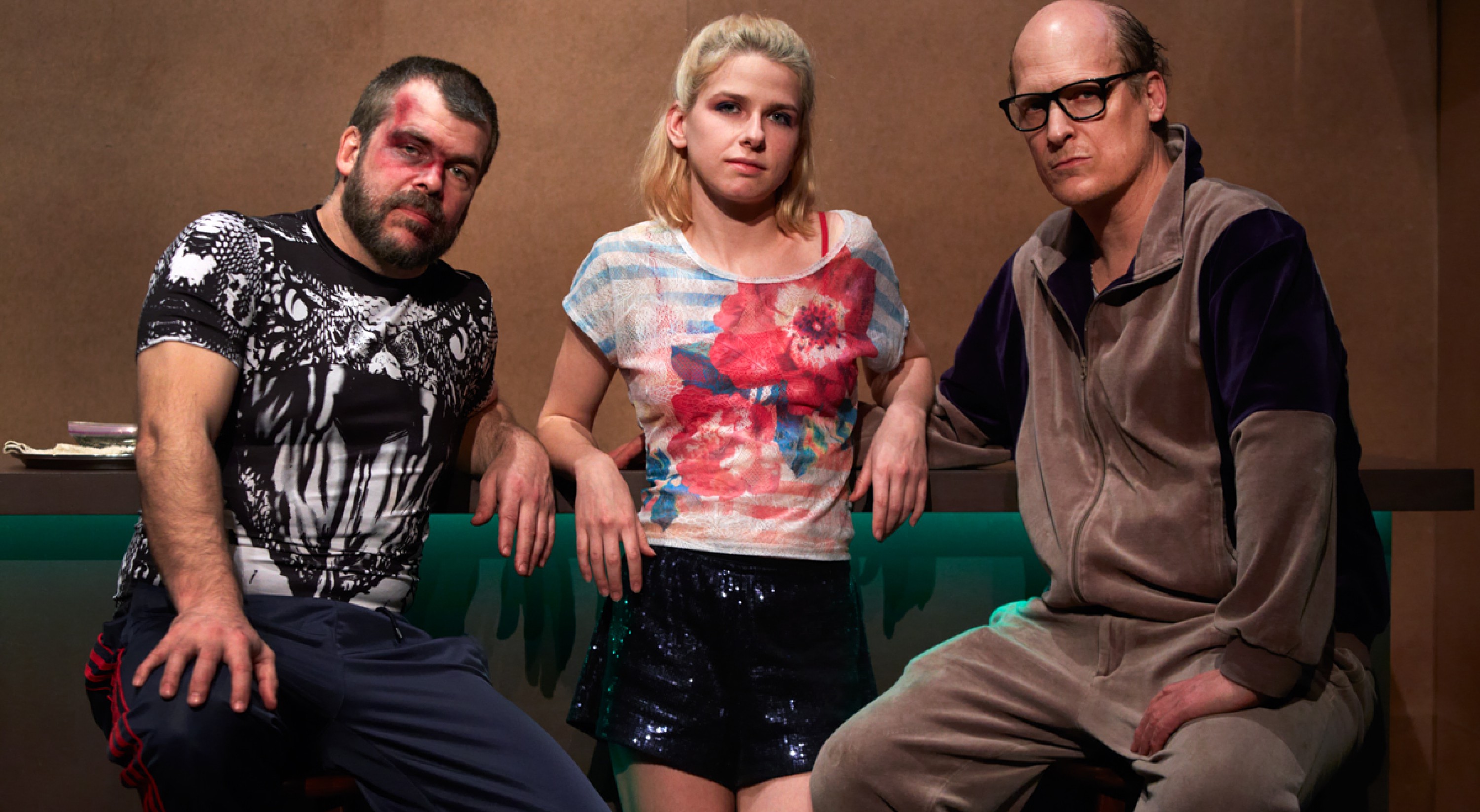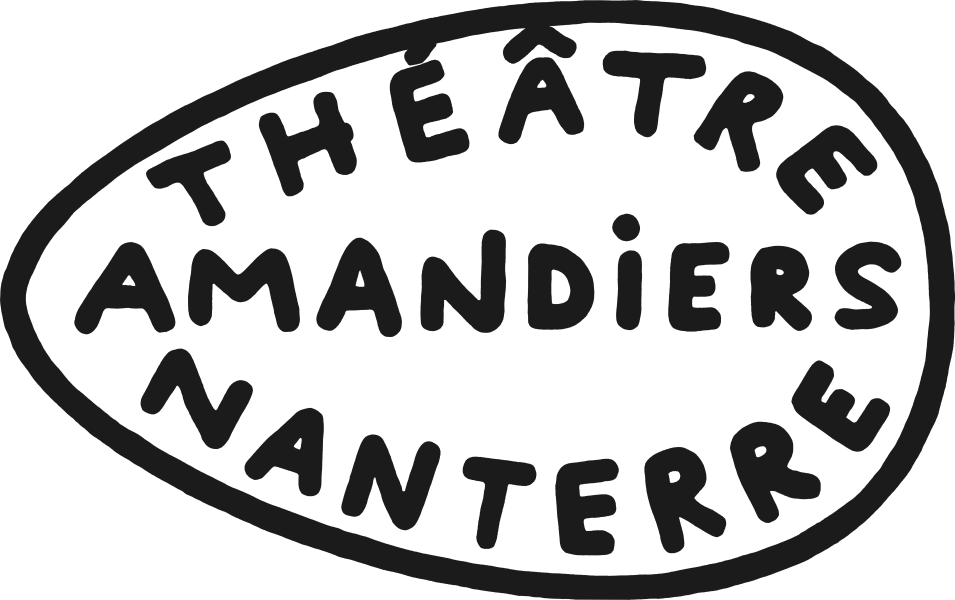Richard Maxwell
The Evening
octoberoct 12 – 19
A New York City Players show
Director, Richard Maxwell
With Cammisa Buerhaus (Beatrice), Jim Fletcher (Cosmo), Brian Mendes (Asi)
Musicians, James Moore, Andie Springer, David Zuckerman
Set and lighting design, Sascha van Riel
Costume design, Kaye Voyce
Technical director, Dirk Stevens
Technical director SFX, Bill Kennedy
Dramaturgy, Molly Grogan
Original music, Richard Maxwell, arranged by the musicians
Production, Regina Vorria
A Kunstenfestivaldesarts (Brussels) coproduction // In association with Nanterre-Amandiers, centre dramatique national ; Festival d’Automne à Paris // Richard Maxwell was given the 2014 Spalding Gray Award, in conjunction with Performance Space 122, the Andy Warhol Museum, On the Boards and the Walker Art Center. // With generous support from Greene Naftali Gallery and The Kitchen // With support from the Andrew W. Mellon Foundation New York Theater Program, Doris Duke Performing Artist Award, the Mid Atlantic Arts Foundation, Alliance of Resident Theaters’ New York/Creative Space Grant, the Edith Lutyens and Norman Bel Geddes Design Enhancement Fund, a program of the Alliance of Resident Theatres/New York (A.R.T./New York) // This production was made possible due to public funding from the New York City Department of Cultural Affairs in partnership with the City Council and the New York State Council on the Arts, a state agency, with support from Governor Andrew Cuomo and the New York State Legislature. // With support from Onda // First performed on 8th January 2015 at Walker Art Center (Minneapolis
Loosely based on Dante’s Inferno, The Evening takes us on a hypnotic voyage of initiation towards redemption. The piece centers around a convalescing free-fighter, his corrupt manager, and Beatrice, a waitress and prostitute, the involuntary muse of this onstage triangle. Unlike that of the Inferno or Purgatorio, the setting, an ordinary bar in a forgotten backwater of America, is far from mythical. In the midst of this familiar, enigmatic setting the three characters embody an array of different attitudes to life - ranging from the desire to run away, to defiance and resignation. In this elegiac, musical work, the world is represented in the form of a dingy bar populated by losers. Caught between two realities, and suffocated by her dreams, the only source of light is provided by Beatrice. A rock group pitches up, and in the space of a few songs, reveals the hidden passions of the different characters - like a chorus. From House, the first hit production by the New York Players in 1998, up to the Joyce-inspired odyssey in Natural Hero, Richard Maxwell has continued to produce experimental theatre of an uncluttered, razor-sharp nature. His last piece, Isolde, saw him delving into literature and legends as inspiration for his work. The Evening is an ode to lost lives. From the depths of its all-too ordinary scenarios, raw emotion bubbles up to the surface. A shadow looms across the stage - that of Maxwell’s father, who passed away during the writing of the show. It adds a further sense of depth to the play, moving it on from bereavement to a leap into the unknown. Every end is also a new beginning.
In the same place

